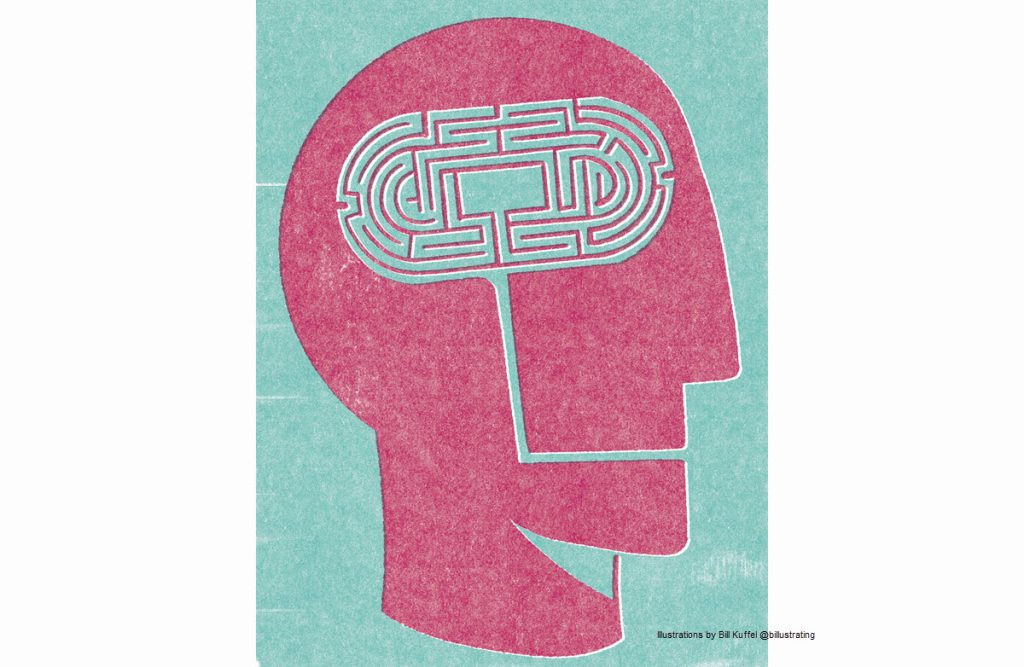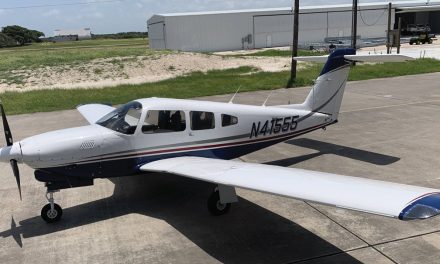
By Laurie Einstein Koszuta
In 2019, Gabrielle Porcaro sought medical care for symptoms of anxiety and difficulty focusing. At that appointment, her physician diagnosed her with Attention Deficit Hyperactivity Disorder (ADHD) and gave her a prescription for Adderall. The encounter was two years before Porcaro, a criminal defense paralegal, began considering a midcareer pivot. At that point, she decided to take a discovery flight and found it sparked an interest in aviation and possibly a new career in the airlines. Two months later, Porcaro enrolled in flight training. What lay ahead was a bumpy and expensive road to get her first-class medical because of the ADHD diagnosis and the Adderall.
Light sport pilots are allowed to fly with a valid driver’s license. All other pilots must either have an FAA medical certificate, or fly using “BasicMed”. With BasicMed, your personal physician can do the exam and sign off on the paperwork for the medical portion. Then, with a current driver’s license and a copy of the record indicating you passed an online refresher within the past two years regarding general medical issues affecting you as a pilot, you are good to go. The physician’s paperwork stays with your logbook. AOPA is one entity that can coordinate BasicMed paperwork via their website, and your currency is kept online as an entry which can be verified on the FAA.gov site.
Until recently, pilots rarely discussed mental health issues openly. Two main reasons were the attached stigma and fear that the FAA would ‘clip their wings’ if such information was disclosed. So, pilots suffered in silence, often negating treatment options and systematically not revealing any condition to the FAA, assuming they would never find out.
FAA Mental Health Regulations
A mental health diagnosis and a history of taking certain medications can make getting a medical complex. The FAA’s strict regulations are in place to ensure that pilots are mentally and physically fit to fly, thus requiring accurate medical histories. It’s another reason why conditions such as personality disorder, psychosis, or severe bipolar disorder are on the FAA’s no-fly list. Other conditions such as ADHD, anxiety, depression, mood disorder, neurosis, post-traumatic stress disorder (PTSD), or suicidal thoughts would likely be deferred by an AME. Additionally, sedatives, hypnotics, anxiolytics, and central nervous system stimulants, such as cocaine, amphetamines, and sympathomimetics, are banned. Even the use of marijuana, though legal in many states, would be cause for a potential inquiry regarding substance abuse, regardless of the quantity or recency of use.
The FAA relies on pilots to self-disclose mental health issues, in addition to any medications and physicians they’ve consulted within the last three years. The medical history form begins with the statement, ‘HAVE YOU EVER IN YOUR LIFE BEEN DIAGNOSED WITH….’ a problematic question because ‘ever’ could mean childhood. Question 18m, for example, lumps all mental disorders, including depression and anxiety, into one yes or no response. Another box asks for a yes or no answer regarding substance/alcohol dependence and abuse and failed drug testing within the previous two years. Suicidal attempts also have the same yes or no answer box. Once completed, the AME must consider all the medical history and approve, deny, or defer the application to a Special Issuance (SI) authorization and possibly a pilot treatment program known as the Human Intervention Motivational Study (HIMS).
“When I started my flight training,” Porcaro said, “I didn’t have my medical yet and wasn’t worried about getting it until closer to my first solo. My instructor reminded me that without it, I couldn’t solo. I made an appointment with my regular doctor for an exam and to get my Adderall refilled. It was then that I learned Adderall was not on the FAA-approved medication list, and no medical certificate could be issued while taking the medication.”
Porcaro was devastated but reached out to an AME for help. “He explained that the SI process would be lengthy and that I’d need to stop the medication for at least ninety days before undergoing cognitive screening with a HIMS neuropsychologist and drug testing to ensure that I was off the Adderall. In addition, I had to produce ten years of medical history from every doctor I had ever visited. I had no idea where to do those tests, their cost, or even how long everything would take.”
Navigating the Regulations
Porcaro was not alone. Many others, like Tim Sisk, have similar stories. Sisk was diagnosed with dysthymia, a type of chronic depression that he wanted to address. “My primary care physician at the time was also an AME,” he said, “and prescribed Wellbutrin but didn’t note it on my FAA records.”
In March 2022, Sisk, an operations inspector for the FAA, went for his annual medical evaluation which is a necessity for his job. He was shocked when the AME asked him about his prescription for Wellbutrin, a medication that was not approved by the FAA at the time. Because this information was not in his FAA file, his medical was not issued, leading to an automatic deferral for an SI.
“At that point,” Sisk noted, “I honestly had no clue what the FAA wanted.” To help navigate the process, he hired an aviation attorney. Together, they gathered 293 documents to prove that Sisk could fly while taking the medication. After waiting months for a response, more documentation, including veteran’s records, was requested.
“I’m not a veteran,” Sisk said. “I even tried to use my internal phone numbers at the FAA to get answers, but no one would give me any information, and I was told to wait for a letter to arrive. Working for the FAA gave me zero advantages or insights!”
The process of obtaining the SI has been described as daunting. Because the required testing is not medically necessary, the out-of-pocket expenses, which include neuropsychological testing, personality appraisals, and examinations by AMEs, can be a significant financial burden. Porcaro and Sisk noted that they have already spent over $10,000 on their testing.
“Some required tests are outdated and don’t reflect current evidence-based medicine,” said Dr. Steven D. Harrington, a retired cardiac surgeon, Cessna owner, and pilot who has had to go through the SI process himself due to physical health conditions. “Even the standards for psychological testing are not up to date. If the testing was to evaluate depression, whether it is accurate or not, it will stay on your record. The regulations discourage pilots from reporting depression and make them hesitate to seek treatment.”
“There are GA pilots with military flying experience,” he continued, “who have challenges like post-traumatic stress disorder (PTSD) as a result of their service. Mental health affects individuals differently. Sleep difficulties, lack of concentration, and fatigue may be more concerning than feelings of worthlessness and guilt. We must consider evidence-based science rather than view it as a regulatory process. Many people in high-stress professions and occupations may be taking medication or receiving therapy without anyone’s knowledge and yet continue to work.”
Zachary Friedman, a 19-year-old student Cessna pilot with thoughts of an aviation career, agrees that the FAA’s approach to mental health is outdated. “The FAA seems stuck in the 1960s,” he said. Mental health is very prevalent today, especially after COVID, and we need an environment where pilots can be comfortable seeking treatment.”
For Friedman, it was the Prozac that his psychiatrist prescribed for anxiety, obsessive-compulsive disorder (OCD), and depression when he was ten that became the red flag. When filling out the medical history form, he checked ‘yes’ to question 18m, which triggered his AME to defer him for an SI. As per the rules, he was required to get cognitive testing, have psychiatric visits, and provide further documentation, which included records from his dermatologist for a diagnosis of cystic acne. Friedman estimates he has spent $7000 on the process.
The Long Wait for Answers
Another frustrating constant is the excessive time gap in communications with the FAA for the SI. “The FAA has a backlog and too few doctors to move the cases forward,” said Anthony G. Ison, Esq., of The Ison Law Firm, which specializes in aviation law. “People perceive the delays as the FAA screwing with them, but in reality, there are thousands of people waiting to have their medical records reviewed.”
“The FAA is looking for detailed information about what led to a particular diagnosis. That information makes the record more legitimate and increases the chances of receiving the SI. The FAA wants to see if there is any risk of recurring symptoms, which is why they look closely at past medical history, suicidal ideations or attempts, psychiatric hospitalizations, and antidepressant use.”
Ison noted a case of an airman with bipolar disorder who was recovering from alcohol abuse. Once the FAA acknowledged that the bipolar was likely caused by substance dependence and had been effectively treated, an SI was issued.
The good news is that the FAA has updated its medication guidelines. Previously, only fluoxetine (Prozac), sertraline (Zoloft), citalopram (Celexa), and escitalopram (Lexapro), all Selective Serotonin Reuptake Inhibitors (SSRIs) were allowed. In May 2023, bupropion (Wellbutrin), a dopamine/norepinephrine reuptake inhibitor (NDRI), was approved. In April 2024, desvenlafaxine (Pristiq), duloxetine (Cymbalta), and venlafaxine (Effexor), known as serotonin and norepinephrine reuptake inhibitors (SNRIs) are ‘conditionally acceptable’ by the FAA. Another new development is that pilots who use antidepressants can reapply, if necessary, and retain their medical if they have undergone additional examinations and taken the drug for six months.
According to the FAA, most mental health conditions, when treated, aren’t disqualifiers. They cite a denial rate of 0.1% of applicants who disclose health issues. The Centers for Disease Control (CDC) estimates that one in five people have mental health issues. How many are pilots? How many remain silent or under-report their condition? “It is problematic,” says Ison. “If the FAA discovers these discrepancies, they can revoke all certificates, with penalties of jail time and $250,000 in fines.”
Supports for Pilots with Mental Health Issues
The Pilot Mental Health Campaign (PMHC), a recently established advocacy group, has urged the FAA to reconsider its approach to mental health issues. Among their many goals are utilizing individualized recovery programs that consider each case’s specific circumstances, evaluating anxiety and depression with the same level of importance as physical conditions, and allowing pilots to continue flying under supervision while their applications are reviewed rather that founding them for extended periods.
In December 2023, the FAA chartered the Mental Health and Aviation Medical Clearances Aviation Rulemaking Committee (ARC), a group of aviation and medical professionals. At the December meeting, the committee made twenty-three recommendations to the FAA in an effort to overcome barriers and mitigate mental health-related risks.
The FAA is also trying to hire more physicians to review applications, which would reduce the wait time. The FAA launched MedXPress, a digital system that enables AMEs to electronically upload supporting materials directly to the FAA, thus negating the initial paper process.
“We all share a common goal to work towards FAA reform.” Said Dr. Harrington, currently a member of the PMHC, “whether it is through policy, legislation or education. We must encourage pilots to seek help for mental health issues without repercussions.”
According to Ison, the following are some tips to making the Special Issuance process less frustrating:
- Start the process early and be proactive. Don’t wait to solo to get your medical.
- Triple Check that you meet the criteria for and SI. Not everyone will.
- Be truthful about your medical history to the FAA. Unscrupulous people can leak unreported information to the FAA.
- Discuss the process with and AME or aviation legal aid before ever talking to the FAA to help understand potential costs, required testing, and probable timelines.
These resources can provide you with more information.
- Aeromedicaal Legal for help navigating aeromedical needs: aeromedlegal.org
- Pilot Mental Health Campaign pilot advocacy group: www.pmhc.org
- Aircraft Owners and Pilots Association AOPA.org
- FAA Reauthorization Act of 2024 www.congress.gov/bill/118th-congress/senate-bill/1939
This five-year bill authorizes increased funding for GA airports, expands BasicMed, updates FAA methodology and addresses policies impacting GA owners and pilots.
For pilots like Porcaro, the initial process took eighteen months to gather first-class medical with an SI. With a past history of infrequent marijuana use, she must continue to undergo monthly drug tests, and meet with her HIMS AME every three months for the next five years. She estimates the yearly cost at about $5000 with the unsettling knowledge that her medical is only good for six months. Student pilot Friedman waited fourteen months to get his first-class medical with an SI while Sisk just got his SI after waiting nearly two and a half years.





